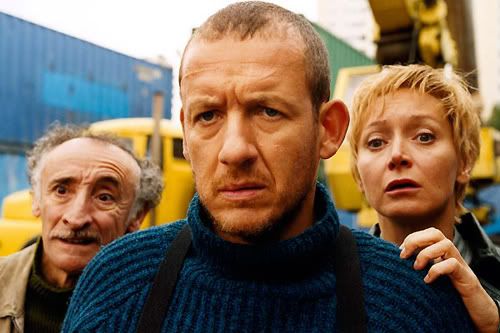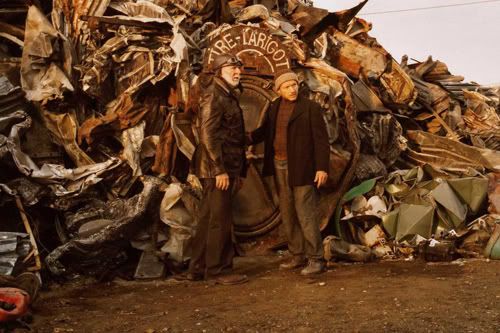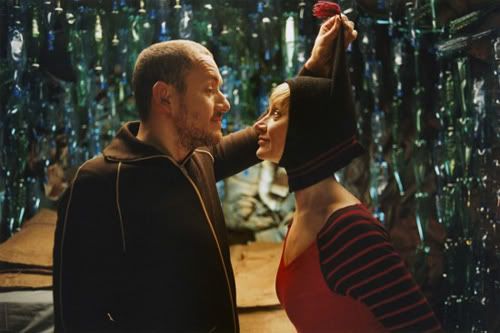Micmacs: The Geekscape Review
Jean Pierre Jeunet is one of the most talented and visually unique directors currently working. He is perhaps best known for the amazing Amelie, but his whole filmography is something to be cherished (even the unapologetically odd Alien Resurrection). So, when I had the opportunity to see his first new film in 5 years I was understandably excited. Did it live up to expectations?
Not really, unfortunately. Now, that’s not to say it’s bad, because it’s actually quite good. Jeunet just happens to be one of the directors I expect greatness from.
The story of Micmacs (a strange title that I’m still not sure the meaning of), is about a man named Bazil, played by Dany Boon, who lives through a series of life changing accidents brought about by the actions of two deulling weapons dealers. Once he finds out the source of his bad fortune he decides to do the only sensible thing, take revenge. Over the course of the film Bazil recruits a series of quirky outcast who hatch a plan to take out the evil weapons dealers. It’s kind of like a cartoon version of Ocean’s 11.

Where the film succeeds is in its charm and visual beauty, two things Jeunet seems to be able to pull off in his sleep. His films exist in vibrant green hued cartoon worlds where a live orchestra might appear behind you to score a revelatory moment or you might drive by a billboard for the very movie you are starring in. His characters are all memorable for their unique and over the top traits. Bazil has a head injury and has to think of random facts or strange observations (Are there pygmy midgets? How tall are they? How many steps does it take to wear down concrete stairs?) to keep his thoughts straight. He also loves reciting dialogue along with movies. One arms dealer collects body parts of famous people while the other teaches his son to have a encyclopedic knowledge of nuclear explosions. Jeunet regular Dominique Pinon plays a human cannonball who swears he’s in the Guinness Book of Records, but just can’t find the entry.

All these characters are fun to watch and the antics they get up to are consistently entertaining. The problem is that it all seems a bit shallow. These people are defined solely by their quirks and that makes it hard to care too deeply for them. Our lovable band of outcasts are given almost not backstory or character development. They just show up, act zany, and live happily ever after. This is especially harmful to the main love story of the movie between Bazil and a contortionist. They don’t like each other, and then they do, and you don’t buy a second of it. It may be that these things are just not a big concern for Jeunet (you could apply these criticisms to almost all of his work) and you are just supposed to infer emotion from the broad strokes that he paints. I just find this a bit unsatisfactory.
The movie also attempts to be an anti-war message film, and this falls almost completely flat. First off, it feels like it’s too little too late (a problem that affected Polanski’s recent Ghost Writer as well) as this general sentiment has taken over art for the last decade and while it’s still an issue, anti-war fatigue set in a while back. The average person is more concerned about their bank account these days. Also, Micmacs is just too cute to be serious. When you have a scene where two men who are responsible for countless deaths are tied up with grenades in their mouths, it should be deadly serious. Instead it’s actually kind of adorable.
That said, I need to reiterate that this is not a bad movie. I can pretty confidently say that you will enjoy yourself watching it. You’ll just walk away remembering the appetizers and condiments instead of the main course.

There is a scene towards the end that sums this up pretty nicely. One of the Bazil’s ragtag crew is a toymaker and throughout the film you’ll see these amazing little toys constructed out of found objects (which reminded me a lot of Michel Gondry). At the end he has a device that is basically a coat hanger with a dress on it rigged to a machine that twirls it around and makes it look like a dancer. The toymaker looks upon this with utter glee, and the camera does too. We watch this dance much longer than necessary, and it’s lovely. Jeunet is a toymaker. He possesses this wonderful imagination and innocence and he finds beauty in the little things, even if that means shutting out the bigger picture.
